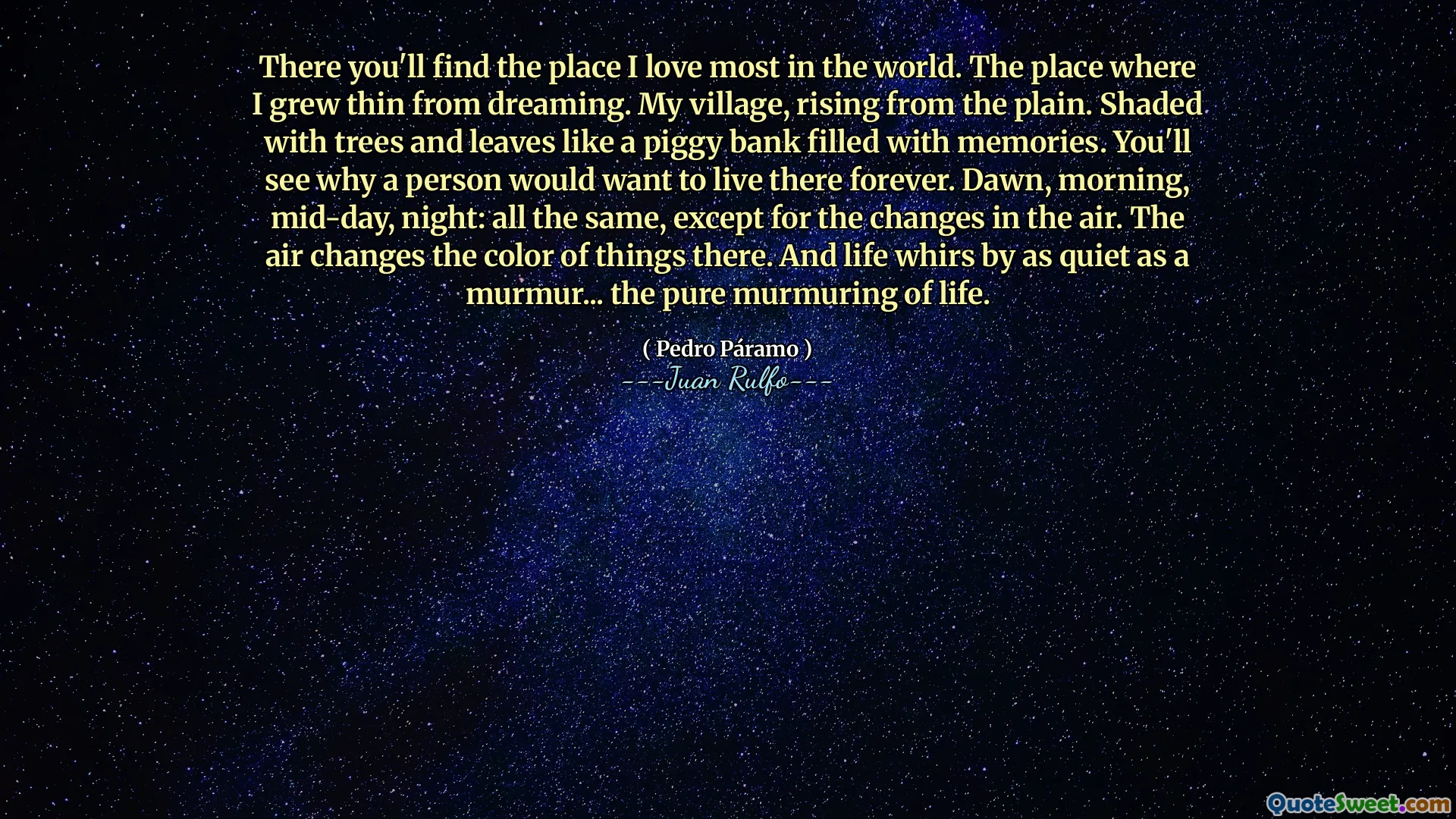
There you'll find the place I love most in the world. The place where I grew thin from dreaming. My village, rising from the plain. Shaded with trees and leaves like a piggy bank filled with memories. You'll see why a person would want to live there forever. Dawn, morning, mid-day, night: all the same, except for the changes in the air. The air changes the color of things there. And life whirs by as quiet as a murmur... the pure murmuring of life.
This passage vividly captures an intimate ode to a beloved hometown, evoking a profound sense of nostalgia and tranquility. The speaker's depiction of the village as a cherished sanctuary resonates deeply; the description of growing thin from dreaming suggests an immersion in longing and reflection, where time spent contemplating one's roots becomes almost tangible physically. The imagery of trees and leaves filling a piggy bank of memories emphasizes how the village is a repository of life's most precious moments—simple yet profound. The observer's insight that living there forever would be tempting highlights the notion that true happiness often lies in simplicity and familiarity. The recurring mention of different times of day—dawn, morning, mid-day, night—being almost indistinguishable aside from changes in the air captures the timeless and unchanging rhythm of the place. It suggests a harmony with nature and an acceptance of life's gentle pulses. The reference to the air changing the color of things symbolizes how perception and mood modulate continuously, yet the essence remains constant. The quiet murmur of life encapsulates a sense of peace and perseverance, recognizing that true vitality can be subtle and understated. This reflection invites readers to contemplate the beauty of one's origins and the serenity found in mundane moments, emphasizing that such places serve as the heart’s sanctuary where identity and tranquility blend seamlessly.







